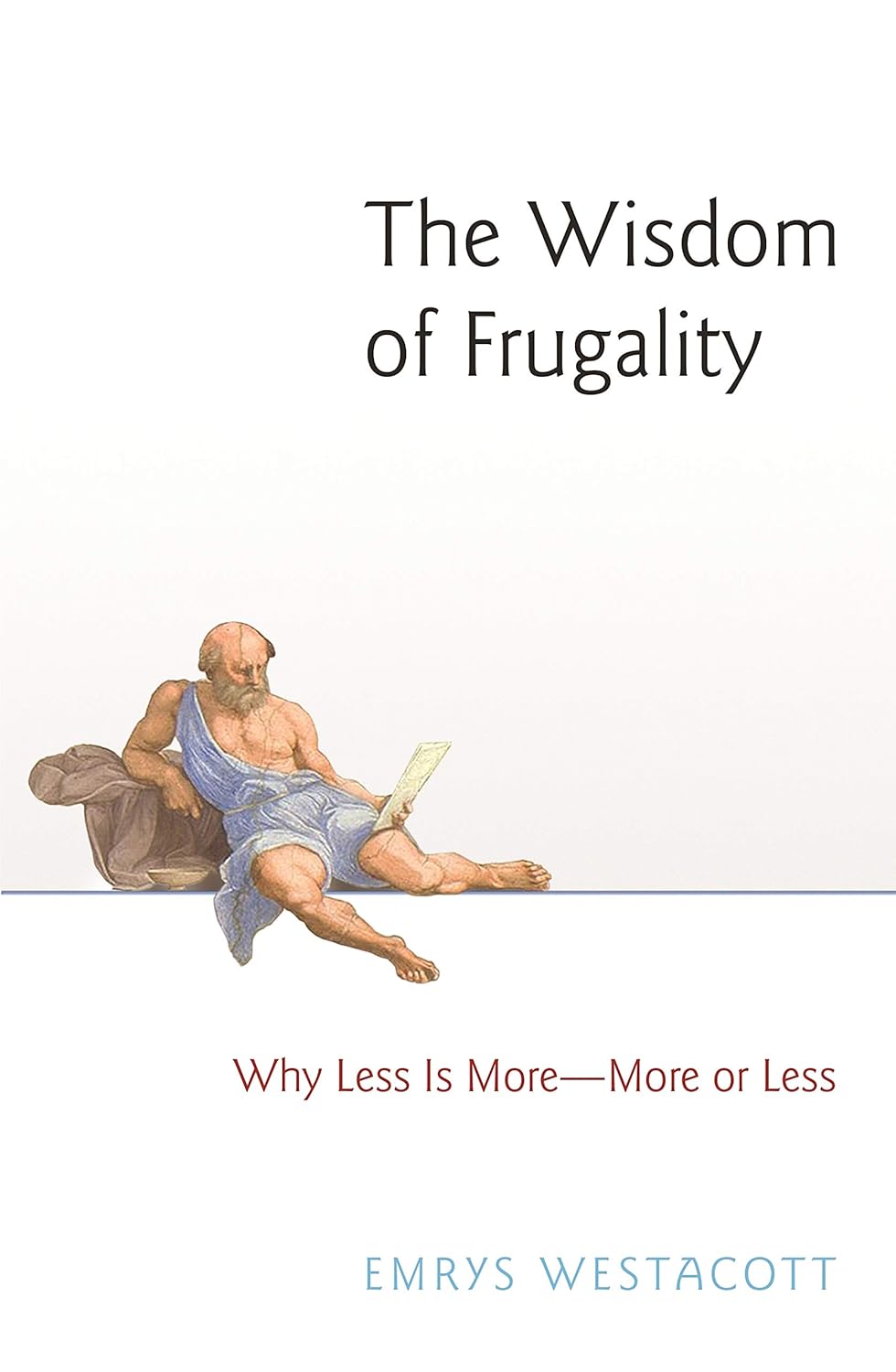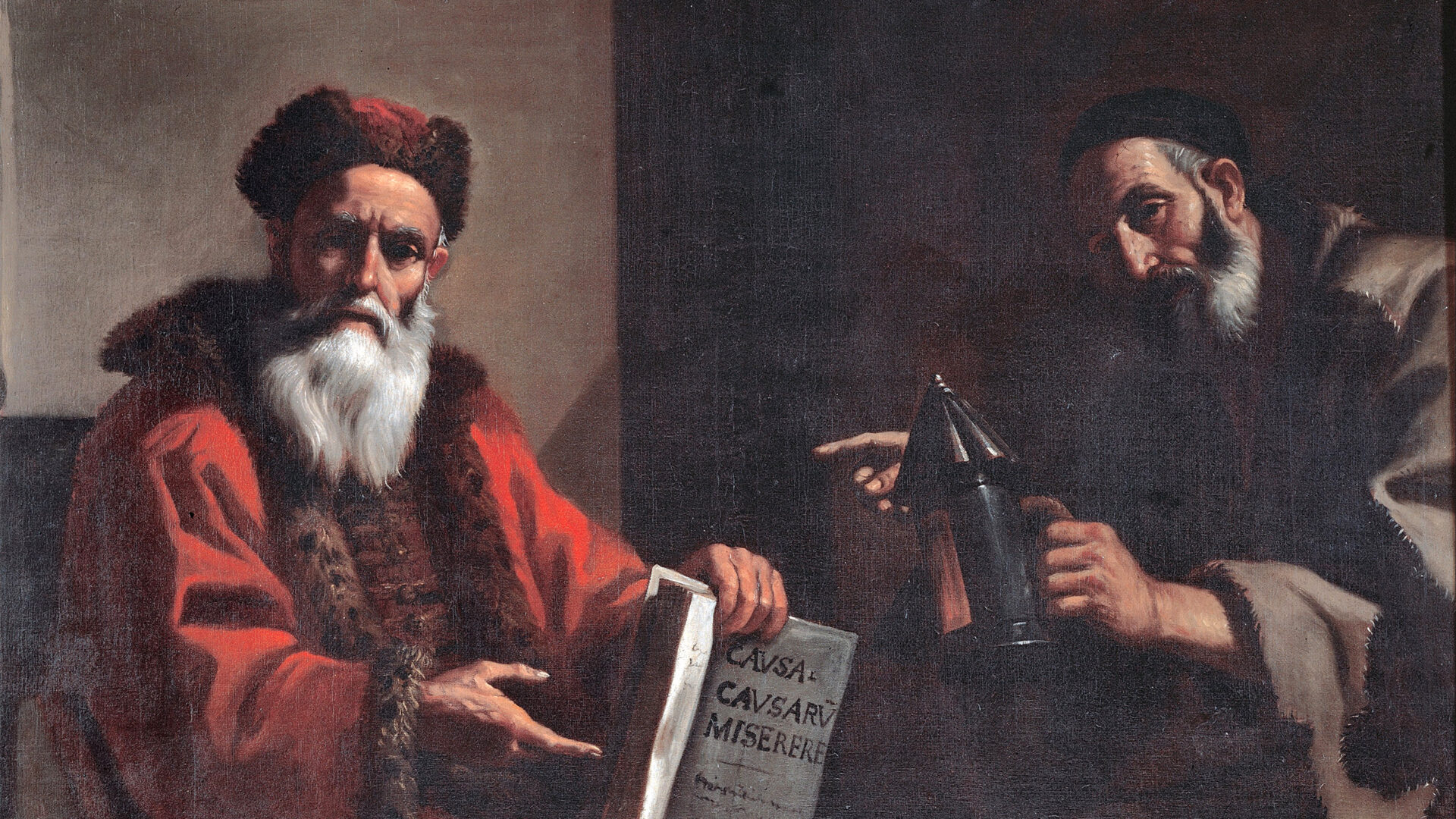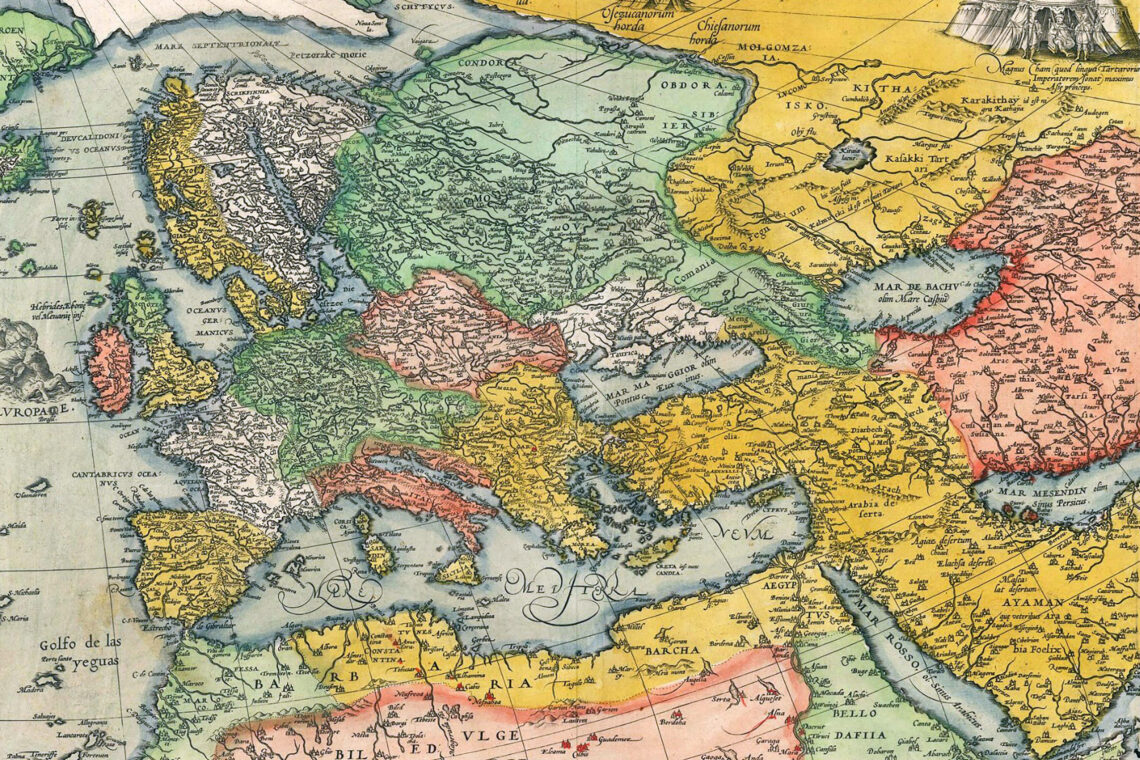Philosophers and religions have offered answers to the question raised in the title of my review article, but the ancient wisdom of an ascetic lifestyle that liberates one to think or pray for eternal salvation seems to have stumbled on the ruthless demands of our capitalist order.
From antiquity to the earlier part of the twentieth century, there has been a sort of consensus among philosophers that a frugal life that sustains one’s basic needs—if that—is indispensable to thinking freely. The eccentric Cynic Diogenes (c. 404-323 BCE) was willing to dehumanize himself until his lifestyle was dismissively described by his contemporaries as “doglike” (the actual meaning of Kynikos in Greek). Epicurus (341-270 BCE), who prized friendship, was also a champion of “simple pleasures,” although Athenian scandalmongers depicted him—and his entourage of friends and servants—as far more hedonistic than he ever was. Having concluded that death is a mere return to a state of nonexistence, Epicurus died “stoically” at the age of seventy-two.
Modern writers and philosophers such as Baruch Spinoza, Leo Tolstoy (in his later life), Friedrich Nietzsche, and Ludwig Wittgenstein all adhered to this ancient Greek wisdom. Wittgenstein went so far as to give away his vast fortune to protect his lifestyle and philosophical thinking (always assumed to go together since dependency on patronage or a salary is antithetical to free thinking.) Other philosophers, such as Arthur Schopenhauer, stuck religiously to daily routines to avoid being burdened by endless insignificant decisions and liberating their minds for deeper forms of contemplation.

As Emrys Westacott shows in his provocative argument about the merits and demerits of the frugal life in his book The Wisdom of Frugality (published in 2016), philosophers like Plato and Christian monks like St. Benedict agreed that a simple life is an indispensable moral imperative. The Stoic Seneca who did not outright forbid the possession of wealth thought that the latter must be possessed “fearlessly” and this attitude can be achieved “only if you can live happily even without wealth.” The Hebrew Bible and the New Testament are both clear on the perils of pursuing wealth. “The love of money,” St Paul asserted, “is the root of all evil.” The Koran, too, warns against the danger of pursuing wealth at the expense of salvation.
Daniel Defoe’s Robinson Crusoe, published in 1719, is a tribute to self-sufficiency (although some degree of dependency on the work of others is inevitable), which was why Jean-Jacques Rousseau recommended it to children under the age of twelve. Even early American universities were founded on a similar principle. Bowdoin College was established in North Yarmouth, Maine, to protect students from the “many Temptations to Dissipation, Extravagance, Vanity and Various Vices as great seaport towns frequently are.” This mission statement is a far cry from what current American universities, thoroughly penetrated by the capitalist ethos, advertise in their marketing materials.
Credentialed elites who amass wealth through narrow expertise and long hours on the job are a novelty in world history. Before the emergence of industrial capitalism, social elites regarded hard work as degrading– suitable for serfs and slaves. As recently as the 20th century, Bertrand Russell wrote that “the morality of work is the morality of slaves.” Since the endless pursuit of money diminishes the availability of leisure time that is essential to what Westacott calls “happiness” and, at the same time, magnifies the fear of falling behind, what passes today for success is a dreadful form of impoverishment, despite all the caveats The Wisdom of Frugality makes for capitalism. One recalls the fifth-to-sixth century Roman nobleman Boethius who, writing from prison while awaiting execution, saying: “If you try to press superfluous additions upon what is sufficient for Nature, your bounty will become sickening if not harmful.”
Still, Westacott makes a good-faith effort to highlight what can be salvaged from capitalism’s poisonous cornucopia. If self-respect is fundamental to one’s well-being, and if this asset depends on abiding by prevailing social mores, can we realistically afford to be marginal hermits? Moreover, is it even advisable to impose constraints on the pursuit of knowledge that benefits humanity as a whole? But then, if the goal of scientific research is “domination and control,” why would such an endeavor complicate the philosophy of frugal sages? In an ironic twist, simple living and subsistence on organic food have become luxury items in a world where the vast majority of agricultural lands are contaminated by pesticides. It may be true that extravagance and openhandedness could be better expressions of indifference to money than close-fisted frugality and that wealth, unlike wretched poverty, could offer better protections to one’s morals; but extravagance has a long historical pedigree—it is not an exclusive feature of capitalism.
Sounding like Adam Smith, Westacott states that “extravagance not only drives much economic activity but is also responsible for many of the most impressive cultural productions and achievements of civilizations. In some instances.” Indeed, it “can even be considered a moral obligation.” According to this argument, our human legacy (not to mention the tourist industry) would be severely undermined without monuments like palaces and soaring cathedrals. Yet what is more morally urgent: defend the slaves who erected such buildings at the expense of their lives or extol the extravagant tyrants who ordered such constructions for their vain displays of power? As Walter Benjamin succinctly put it: “There is no document of civilization which is not at the same time a document of barbarism.” Westacott himself notes that it was Seneca who believed that “thatch protected free men: under marble and gold dwells slavery.”
Westacott’s attempt at even-handedness leads him to argue that regulated capitalism is a potential force for good and its end could be catastrophic for everyone. Widespread frugality would “stall” the economy and cause all sorts of social problems, even though consuming capitalist goods is often detrimental to one’s health. The wholesale undoing of the current economic order would cause untold suffering with no significant redeeming benefits.
There is a sort of fatalism in this conclusion, especially since Westacott is skeptical of the “rather individualistic quietistic tinge” inherent in a philosophy of frugality. The author is concerned with the common good, not with the individual’s quest for freedom and salvation. He seems to be trapped between two imperfect conditions of human existence and is unable to negotiate his way out to a safe middle ground.
That is to be expected. If the goal of life is to avoid suffering, as the Buddha proclaimed, capitalism turns this fear into a ferocious pursuit of wealth and power, not a collective retreat in nature. To be fair, the ideal of “happiness” that Westacott posits as our ultimate goal is unachievable under any socio-economic condition, which is why Nietzsche, despite leading a rather monkish life, was on to something when he admonished us to “live dangerously.”
Without the transcendence that philosophical meditations and mystical experiences allow, Nietzsche’s admonition may be the only way to take a stand against a world that is indifferent to our best interests.





Comments are moderated by the editor and may not appear on this discussion until they have been reviewed and deemed appropriate for posting. All information collected is handled in a manner consistent with our privacy policy.